#duc d'orleans
Photo


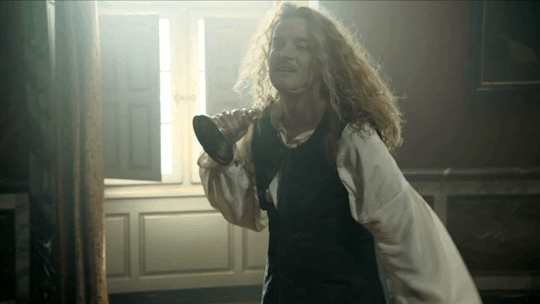
Versailles [S2:E4]
#versailles tv#evan williams#chevalier de lorraine#duc d'orleans#phillipe d'orleans#alexander vlahos#chevy#comedic timing#my gifs#my edits
120 notes
·
View notes
Text

January 7, 2024: Welcome to 2024!
Okay, I have been writing (and there is a LOT). However, I've had to deal with bedbugs for the past six months (and going). I have no time to go into the logistics (and the blame sits squarely on the shoulders of my stepsister), but I'm here to have some fun and tell you about what is going on with the HOB.
Without too much detail of the private conflicts that plagued this project since its creation upon the heels of the success of @tkwrtrilogy2, @tkwrtrilogy, and @tkwrtrilogy3, there has been an overhaul. Also, the latest addition to the trilogy will make its debut on Wattpad (but will come here eventually).
First, the OVERHAUL: Welcome to the HOB Universe.

You're asking yourself: WTF is this? Well, the best explanation of it can be seen here. All that applies is that this takes place in 17th-century France rather than Middle Earth.
I will be overhauling the Tumblr for @lesecretdelamaisondubourbon. There is a reason, but to find that out, you'll have to read the memoir about all of this (TBA). Either way, it comes on the heels of family drama and the death of a friendship that was supposed to last forever (according to her). But, the book (known by the title XIV) is going up on Wattpad, so while it is being overhauled over here, you can read it in its proper order over there.

XIV: The life and times of Louis XIV as told by Louis XIV--if you haven't figured that out yet. It is part of Book III; his father's story (@thesecretofthehouseofbourbonbook) is Book II.
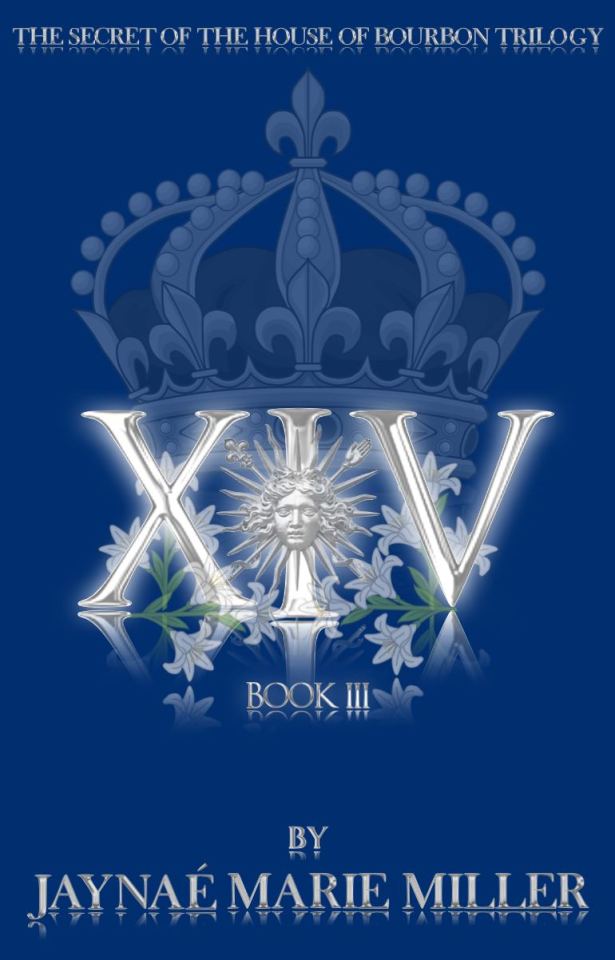
Now, about that other book: The original title of the book (that was going to be written by my former co-author) was Monsieur. If you guess that the book was going to be about Philippe I, Duc d'Orléans (younger brother of Louis XIV), you were right.
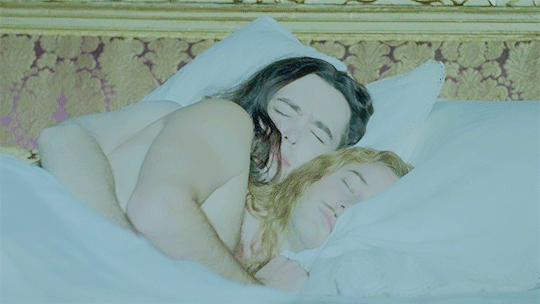
If you think this is a retelling of centuries of rumor and innuendo, you would be wrong. This will be his story--told by Philippe. Under the title of Son of France (Fils de France in French), this is the story you were never told. After 383 years, it is time.
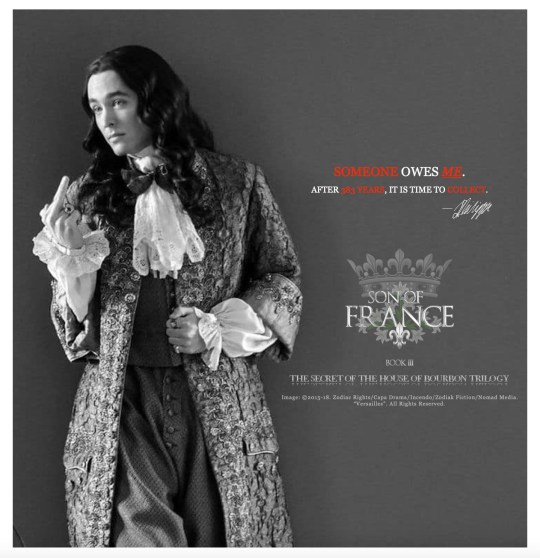
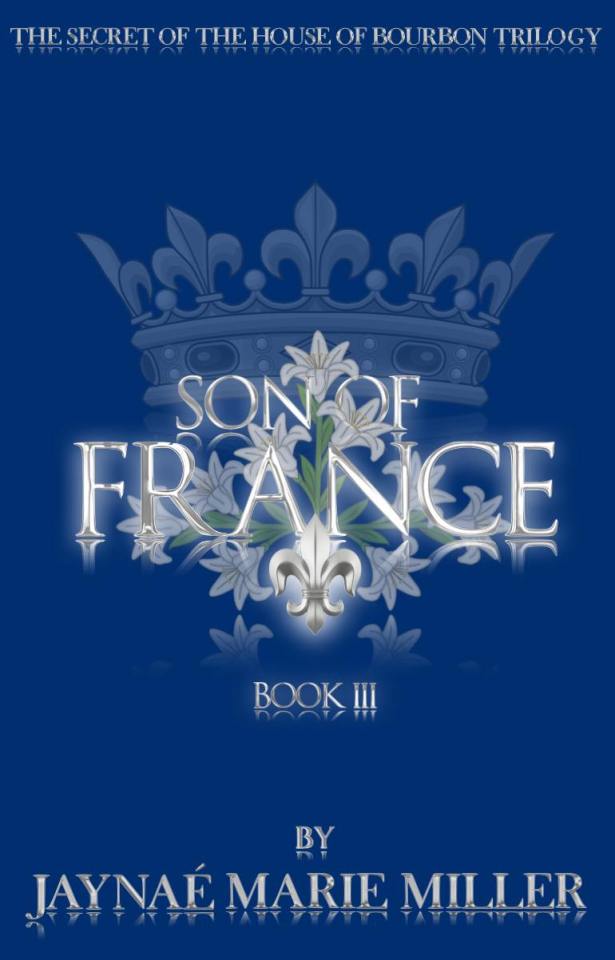
His story officially began in January of 2024, and he will be following his brother Louis here once he debuts on Wattpad. Stay tuned for more. He's part of the universe now.
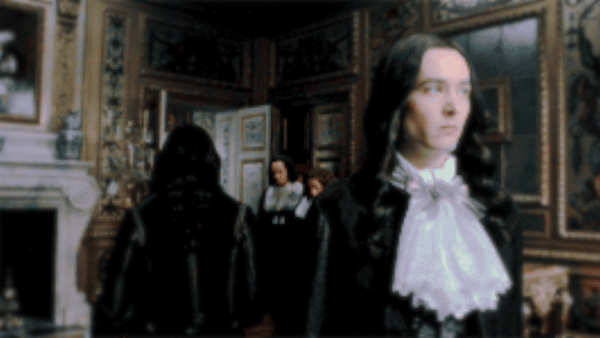
#historical drama#historical fiction#xiv#louis xiv#monsieur#philippe i#duc d'orleans#books#novels#wattpad#hobnewsfeed#the official hob#the official hob trilogy#hob literary universe#literature#writers on instagram#writers on twitter#writers on tumblr#writers on wattpad#writers on wordpress
7 notes
·
View notes
Photo
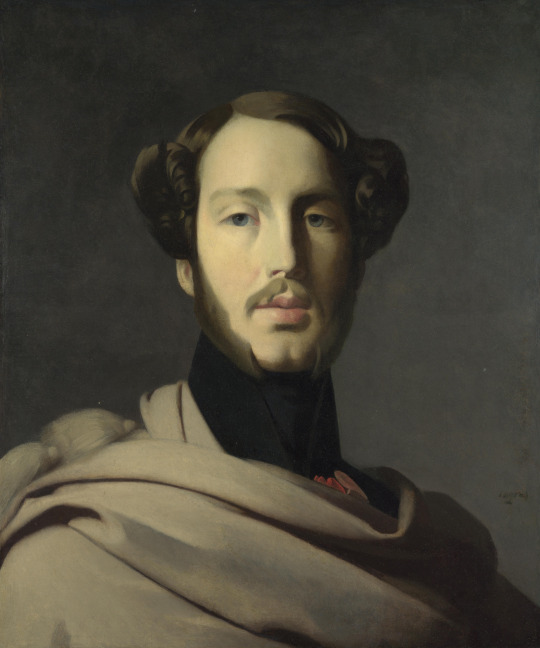
Prince Ferdinand Philippe, Duke of Orléans. Workshop of Jean Auguste Dominique Ingres.
#jean auguste dominique ingres#maison d'orleans#bourbon orleans#maison d'orléans#ferdinand philippe d'orleans#duc d'orléans#prince de france#duc d'orleans
22 notes
·
View notes
Text
JACOBIN FICTION CONVENTION MEETING 28: THE GLASS-BLOWERS (1963)
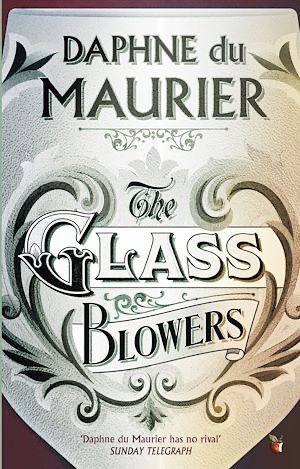
1. The Introduction
Hi, Citizens! Welcome back to the Jacobin Fiction Convention!
So, today’s the day we review yet another media piece! Will it be a hidden gem? A shitty Thermidorian-sponsored pile of lies? One of those modern perceptions of Frev that paint the warmongering rats called Girondins as the innocent moderates again? Let’s find out!
(I swear, the Girondins may haunt me after this… but I don’t give a fuck!)
Anyway, I usually don’t trust authors who are anglophone. Not on the topic of Frev, at least, as our community has been burnt on that front far too many times.
However, what interested me about Daphne du Maurier’s novel is the fact that it’s based on the story of her ancestors, the titular glass-blowers from France, so she definitely had much more accurate material to work with than most authors do.
Also the foreword throws a ton of shade at The Scarlet Pimpernel (which is a pleasant bonus in my book) and promises readers a private story - the tale of one specific family - instead of same old, same old sensationalist Frev stuff usually shown in media. So, naturally, I was interested to see if this would be the one time an Anglophone book wouldn’t spout propaganda.
In order to find that out, let’s begin!
P. S. The book is available online in PDF and EPUB formats so it shouldn’t be hard to find the entire thing.
P. P. S. This review is dedicated to @fireortheflood and @edgysaintjust
2. The Summary
The summary comes from Goodreads:
“The world of the glass-blowers has its own traditions, it's own language - and its own rules. 'If you marry into glass' Pierre Labbe warns his daughter, 'you will say goodbye to everything familiar, and enter a closed world'. But crashing into this world comes the violence and terror of the French Revolution, against which the family struggles to survive.
Years later, Sophie Duval reveals to her long-lost nephew the tragic story of a family of master craftsmen in eighteenth-century France. Drawing on her own family's tale of tradition and sorrow, Daphne du Maurier weaves an unforgettable saga of beauty, war, and family.”
Okay, the summary is coming off as having a bit of propaganda, but genuine atrocities did happen during Frev too so let’s not jump to conclusions just yet and unpack this.
3. The Story
First of all, I loved the framing device of one family member (Sophie Duval) writing a letter to another (Louis-Mathurin Busson, her nephew) to help the latter uncover important truth.
I will get into why Sophie is doing that in the “Characters” section, but I like this “excuse” for telling us this story, as it really feels like the reader is let in on the secret along with the character of the nephew.
Also, I like the fact that the primary focus is on the Busson family and multiple prospectives within it, as this makes the reader more attached to everything that’s going on. Honestly, reminds me of “One Nation, One King”, a movie in which ordinary people are the main characters, not historical figures. Also this approach is refreshing!
The pacing is generally pretty good, and, while at first I felt like Sophie’s decision to start with the story of her parents was a bit unnecessary, it proved to be the opposite. See, that backstory actually sets up a lot of things that will happen later on and, again, make for a more personal story where the reader is actually invested in the lives of the characters, their trade (glass making), etc.
However, be warned that some time skips can be a bit confusing and the pace is not fast, which definitely isn’t for everyone. Also the story isn’t exactly linear - no big goals or high stakes to drive the narrative here, so it’s probably not a book for you if you prefer something more linear and goal-oriented with high stakes.
Finally, I love the touch of pointing out that certain events in the family happen right before/right after the important historical stuff. Only serves to make Frev more personal in the long run, which is nice!
And, while the narrative doesn’t idealize Frev, we’re meant to see it as a good thing, with Royalists and Girondins being the bad guys (yay) and here’s the excerpt that brought me joy specifically because it doesn’t sugarcoat Girondins (they don’t deserve it):

So yeah, when it comes to the story, I haven’t seen any major issues. Moving on.
4. The Characters
(Spoiler alert!)
To be honest, I found Sophie Duval a bit bland at first, but her character grew on me later on. She is initially against Frev and thinks it’s just radical fanaticism because she sees riots personally and fears for her family, but later becomes disillusioned by the old laws and embraces the Revolution.
Of course, with the Revolution come atrocities as well, so she doesn’t view it through rose-tinted glasses in hindsight, but she doesn’t really buy into most of the propaganda. There is a tidbit of Law of 22 Prarial where she thinks that this is going too far, but this is not an unreasonable fear, more like fear of the side effects of this law and not being able to know the full context anyway, since she lives in a more rural area, away from Paris.
In the end, Sophie just looks out for her family and her views change throughout the story. Very realistic, and I love it.
I also love her siblings, two of whom are revolutionaries, and I love the fact that one of the revolutionary siblings is female (her name is Edmé). See, revolutionary women should get more credit and representation, so I’m ecstatic that we got a republican action girl who participates in riots and even kills a Vendean rebel!
She isn’t afraid to take action. Love it!
Pierre, yet another one of Sophie’s siblings, is a secondary character but I love the fact that he does his best to help the poor as a lawyer and also actively tries to change things.
The only one out of the Busson siblings whom I hated is the oldest, Robert. Basically, since he was born when his parents were pretty wealthy (running a glass-house) and his mom was on good terms with the owner of the business (a marquise), Robert naturally visited the château of this marquise a lot as a child because that was his mother’s friend.
Unfortunately, this environment made him dream of high society and become too ambitious and irresponsible for his own good. He bankrupts himself multiple times and one bankruptcy results in the sale of the glass-house where his father was apprenticed, yet Robert doesn’t give a fuck.
He generally doesn’t give a fuck about anyone except himself or the consequences of his actions, to the point that he abandons his kids! Twice!
First time, he loses his first wife and does raise his son for a bit, then Frev comes and he sides with Duke of Orléans. Then he realizes that France isn’t going to be a monarchy and flees with émigrés to London, abandoning his son completely and dumping him onto Madame Busson like a sack of potatoes! Oh, and before leaving he remarries without telling anyone.
Second time, Robert completely deceives his second wife, pretending to be an impoverished aristocrat who was never married and never had kids, knowing she will believe it because she is a young and naïve orphan. Then they flee to London, have a bunch of kids (he never remembers his first son), Robert finds out that French émigrés aren’t welcome and he can’t make it big and be in high society like he hoped. So what does he do? Correct, he fakes his death and returns to France, abandoning his second family too!
Sorry for the rant, Citizens, it’s just that Robert made my blood boil. What a charming fucking guy… It’s really no wonder that, after his return, his first son wants nothing to do with him.
By the way, the nephew to whom Sophie is writing about her family is one of the children Robert had with his second wife, so he grew up believing the lies that his father was an aristocrat whose château was burned down by revolutionaries, so the reason for this letter is Sophie telling him the truth, as she rightfully believes that it’s her duty and that her nephew should know said truth.
I also liked Magdaleine Busson, Sophie’s mother. She is a caring, strict and wise woman who looked after ledgers and workers at the glass-house where her husband was managing things. She takes no bullshit from Robert at all and is absolutely furious the bastard left behind his son. Okay, actually she takes no bullshit from anyone, which is pretty cool.
As for historical figures, most of them are merely namedropped. Duke of Orléans makes a cameo, but others are mentioned in passing (like Marat, Robespierre and Napoleon). Also we have more obscure people being mentioned, like General Kléber or Pierre Choderlos de Laclos (if you know Dangerous Liasons, that should ring a bell). But that’s about it, and I’m okay with it because it’s not a story about them.
5. The Setting
Du Maurier really has a way of bringing the story to life with just the right amount of description and action balanced out. Love her approach to that.
6. The Writing
There is some outdated vocabulary used, but most of the time it’s really easy to understand for those who’re fluent in English and French words have just enough context clues for the audience to figure out what they mean.
The style also doesn’t dive into annoying habits like absurdly long descriptions, which is a big relief after that awful Madame Tussaud book.
Also it’s one of the few times I’ve seen where the first person point of view avoids the trap of the main character becoming the author’s surrogate in the universe or a self-insert.
7. The Conclusion
I’m pleasantly surprised to report that there’s very little (if any) lies here. All in all, this is an excellent read that takes a dive into family history of the author and the events unfolding before the eyes of the characters.
It has well-written characters, a compelling story to tell its audience, a first person POV done right and, for a change, a narrative that focuses on regular people.
I definitely recommend this novel (but trigger warning for child death, still births, death, blood, pregnancy and an ableist word towards the end). If you feel like reading a story offering lower stakes and more personal conflicts, then this is a novel for you.
But, with that out of the way, we must conclude today’s meeting. Stay tuned for future updates and reviews!
Love,
- Citizen Green Pixel
#frev#french revolution#frev art#frev media#jacobin fiction convention#daphne du maurier#the glass blowers#robespierre#marat#duc d'orleans#pierre choderlos de laclos#napoleon bonaparte#jean baptiste kleber#literature review
21 notes
·
View notes
Photo
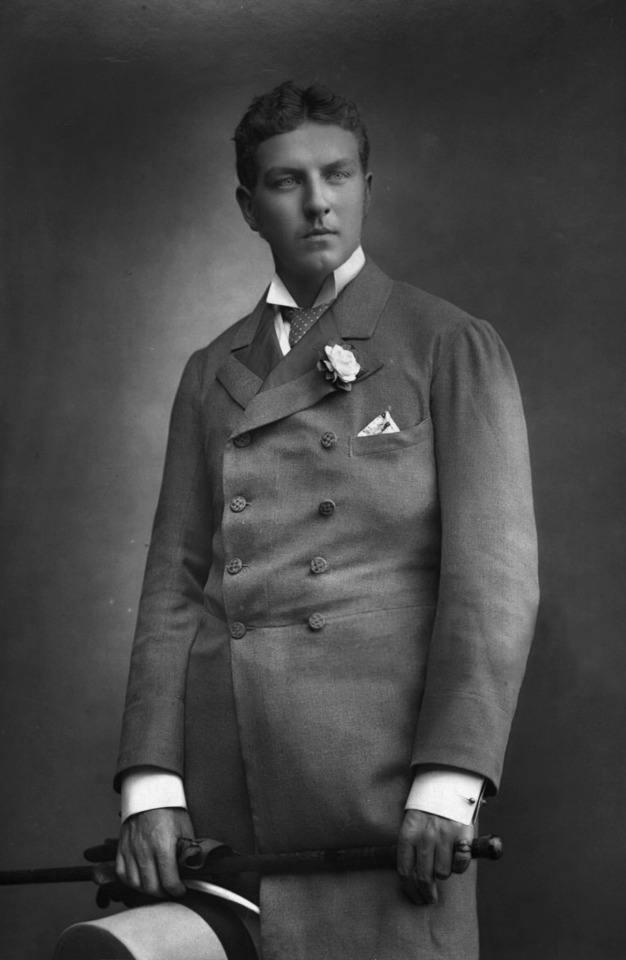
Philippe VIII, Duke of Orléans. Photographed by Walery, 1890.
14 notes
·
View notes
Text
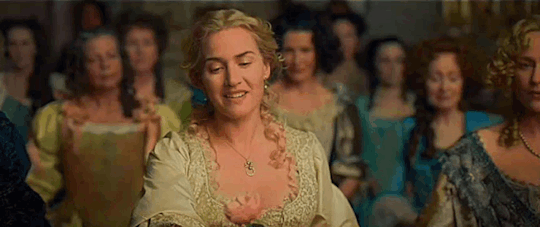

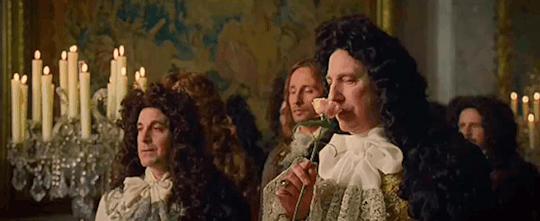

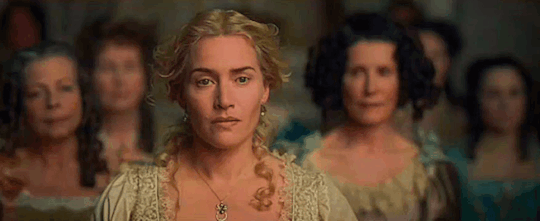
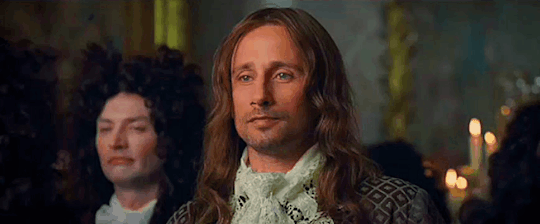

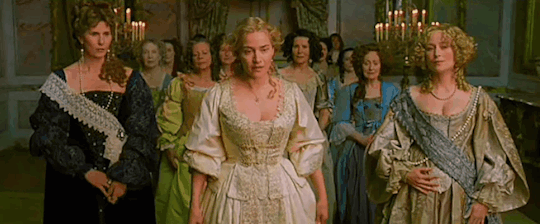
A LITTLE CHAOS (2014)
dir. alan rickman
#a little chaos#costume drama#period drama#perioddramaedit#perioddramagif#sabine de barra#kate winslet#andre la notre#matthias schoenaerts#king louis xiv#alan rickman#philippe duc d'orleans#stanley tucci#madame de montespan#jennifer ehle#princess palatine#paula paul#my gifs#mine
98 notes
·
View notes
Text

How Philippe looked talking about the man in the iron mask
21 notes
·
View notes
Text
Don't mind me, just anguishing over the fact that when they're together, Chevy calls Philippe 'mignonette' and 'my dear' and 'my love' and 'darling'...
... and when they're broken up, he calls him 'Your Highness'.
#versailles#monchevy#chevalier de lorraine#philippe duc d'orleans#it's about them never being able to be equals#it's about that permanent divide no matter what they do#no matter how in love they are#it's about chevy knowing how easily disposed of he is#compared to philippe who can never be replaced#it's about chevy admitting his 'place' after two seasons of ignoring it#of pretending he was above his station#how the moment their relationship is over#he must revert to being subservient#and yeah we're talking degrees of nobility here#it's not like he's a servant#but still
36 notes
·
View notes
Text
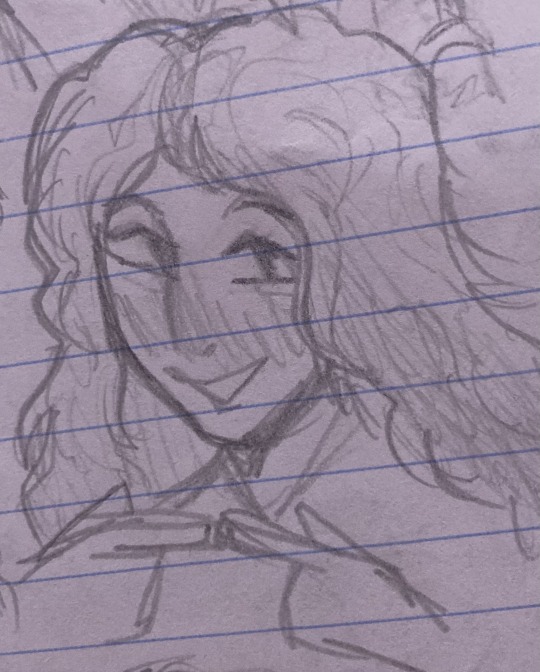

a eugene of savoy and the first philippe ever drawn i think
do not ask why eugene is 👉👈 i was probably high while drawing that
#philippe is THE babygirl#this is so random but i like eugenes nose in this 😭#eugene of savoy#philippe duc d'orleans
7 notes
·
View notes
Text
So who was going to tell me about the Chevalier de Lorraine's kids???

"Alexandre was one of several children fathered by the Chevalier de Lorraine... In 1674, Alexandre was formally acknowledged and legitimised by his father, which allowed him to inherit property. He thus became the Chevalier de Beauvernois, named after a small seigneurie in Burgundy and was able to carry the last name of his father. (He seemed to have preferred not to do so and went by Alexandre de Beauvernois most of the time, perhaps to ‘avoid’ the bâtard for bastard in front of the Lorraine.)"
So just like Philippe, he was bisexual and very promiscuous (I knew about the latter already, it was the former that surprised me since he never got married).
Sauce: https://partylike1660.com/alexandre-batard-de-lorraine-chevalier-de-beauvernois/
#chevalier de lorraine#philippe i duc d'orleans#more and more i mistrust people who romanticise the relationships of long dead people#same goes for napoleon and josephine#and peter the great with catherine#the list could go on
7 notes
·
View notes
Text

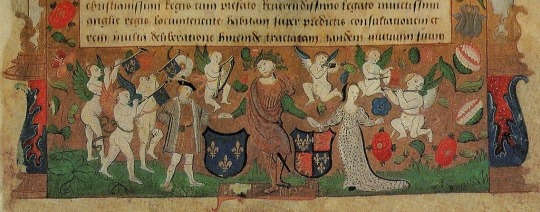
Depiction of Mary I at 11 years old as part of an illustration of her betrothal contract with Henri, duc d'Orleans, 1527.
Mary had previously been betrothed to the eldest son of Francis I of France, but her father Henry VIII broke the engagement when the relationship between the two countries soured. After her subsequent betrothal to Emperor Charles V fell through, Henry turned back to France for a marriage with Francis's second son, Henri. This betrothal would be abandoned after Mary's legitimacy was called into question during Henry's annulment to her mother. Henri, later Henri II of France, would marry Catherine de Medici, and Mary would marry Philip II of Spain, son of Charles V.
#DOES ANYONE KNOW WHERE I CAN FIND THIS DOCUMENT BEFORE I HURL MYSELF INTO THE SUN#tudors#manuscript
20 notes
·
View notes
Text
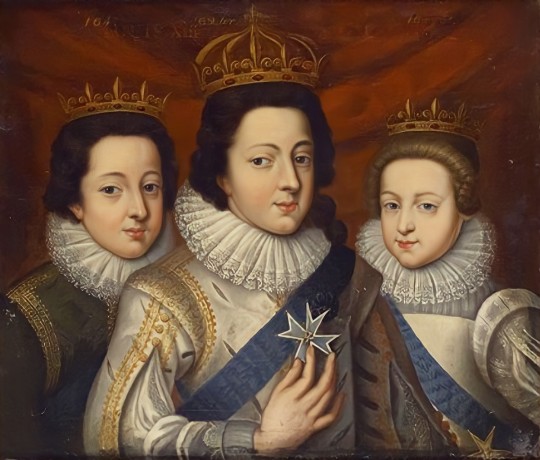
Louis XIII and his brothers Gaston and Nicholas.
#royaume de france#maison de bourbon#louis xiii#roi de france#roi de france et de navarre#vive le roi#nicholas of france#duc d'orleans#gaston of france#duc d'anjou#fils et filles de louis xiv#fils de france#Frans Pourbus#frans pourbus the younger
15 notes
·
View notes
Note
I love your Haarlep and Raphael so much ^~^ why them?
Hello, anonymous. You mean why is this one of my interests? Or why does my soul have a passion for them? I'm guessing, it's both. :) In fact, this pairing has existed since I first met the incubus and enjoyed the scene with him in the aesthetic form, that is usually admired in a beautifully shot erotic short film. Their relationship is confirmed by the studio itself, given the secrets of the Devil's acquaintance in the House of Hope, which are revealed as soon as you get there. I fucking love these two. And I can't stand their romanticization. I like them, both individually and together.
Haarlep is underestimated by many. Its surface is that of a sex toy. Let's be honest - that's practically how it is. The tip of the iceberg that everyone recognizes. And don't want to go deep into a volcano. :) But he is an incubus (or succubus - depending on what the player prefers). Its essence suggests a sexual context. These creatures feed on lust, passion and desire. And yes, they devour their victims during intercourse. Fortunately, we have a choice. I prefer to leave Haarlep alone as he doesn't do anything bad to the player. The only thing is that he will not play to your tune. He prefers to get his own. Figuratively speaking. And during this cut-scene you can reveal Haarlep's personality as a very ambitious, smart demon. I like that it offers play. A game with a mouse, like Raphael. Tav is also a little mouse for him. And he's a cat that Raphael clearly respects, given some of the information that we receive during our communication with the personal incubus. From here the 'sex toy' moves into the background. In my humble theory, he's the favorite. He's a favorite, like the Duke of Buckingham for King James VI of Scotland or Philippe de Lorraine for Philippe, duc d'Orleans, brother of King Louis XIV. Accordingly, Raphael is the king (or Emperor) of his kingdom (Empire), and the incubus is his favorite. Favorites had privileges that queens and empresses sometimes never dreamed of. Naked facts. And Raphael shares everything with him and doesn't hide anything except what's in the safe, right? Is it really just about sharing with a sex toy your thoughts? Not sure. This is logical, don't you think? That Raphael chose him from many other incubus (succubus) and demons. And I trust the Devil's choice, since he hid several of his secrets in the boudoir. In his personal space there is the only incubus. One of his secrets. Even if there is no love in their relationship (there is none, accordingly - I'm sure that it doesn't exist in their understanding), there is a certain trust and respect. Peculiar. Belongs to both of them. He trusts Haarlep with his dirty secrets. His desires and fantasies. He trusts him with his body. His face. His essence.
Haarlep has some power in these chambers. And he behaves relaxed, not tense, like a person to whom everything is permitted. He behaves like a favorite.
Let there be a treaty between them (I've read some theories about the possibility of an incubus being there as a personal pleasure, and I find this theory more realistic and entertaining), let there be a dozen fire-stinging stones in a theory where Haarlep is not particularly happy with his position. But I don't consider him a victim. He is in the Devil's chambers. On his pillows. In his bed. He is, I must say, in an excellent position. Whatever was behind his wings. Whatever stories this situation hides. He settled in perfectly in the space of the House of Hope. He laughs, he is amused, he knows Raphael almost completely. He is his perfect copy. Is this a loss of individuality or a choice that has already been forcibly ingrained? Or is it an imposed preference and approved by rebellious humility? I love the moment, when Haarlep mocks his Devil. This is the best thing about the scene. He plays pranks like a cat, knowing that his owner will not praise him, that this will anger Raphael. He adds fire to the flames already filling the House of Hope, because Tav has climbed where he shouldn't. And since he asks, it makes no sense to lie. Is this revenge for the agreement? Or is his own dissatisfaction that he is a hostage to his position, which he both likes and perhaps periodically gets bored with? Various options are possible. Without vanilla dreams of romantic feelings. No secrecy. But the point is that he knows the Devil. He knows, what he is like. He knows, he won't like it. And he gives away the keys to the most valuable things. He is their keeper. He is the keeper of the Devil's main secrets. He is a good cop towards Tav and a bad cop towards Raphael. He's a demon. And he has the right to do as he wants, since it is not that he isn't afraid of Raphael - he's neither a servant, nor a representative of the second or third class, and probably knows that nothing will happen to him for such. After all, the guilty thief will take full responsibility.
The devil is not so stupid as to put just anyone into his bed. We see that Raphael prefers order. As the owner of his house, he does not tolerate chaos in his possessions unless he wants it. Judging by his behavior, how courteous he is, how collected he is, a portrait of a meticulous to the point of neatness is clearly emerging. That is why he is so enraged when, despite his advantageous decency, if a player signs a contract, deciding to break it, comes to the House of Hope, or follows Orpheus' hammer, without his permission he visits something that is kept in strict order and according to the rules of Raphael himself. Therefore, I see no point in romanticizing his relationship with Tav, since he makes it clear that it is not the character that he craves, but what this little mouse can give as a result of his progress towards a single goal. He may admire him to some extent. But Tav will remain a mouse. And Raphael is the Cat. And he defines inequality by this. :) He distributes it clearly and politely. Nevertheless, the above describes Haarlep and Corilla as equals. To those close to him. They are his advisers, spies, guardians. Therefore, no matter what stones hang in the relationship with Haarlep, his relationship is realistically confirmed. And I like their uniqueness. Their honesty. Their non-standardity. There is no love there, no sweet feelings there. There is something that Raphael values - honesty. It is unlikely that he would want Haarlep to cowardly tuck his tail between his legs and say in a trembling voice that all his poems and plays are written beautifully, magnificently, and are masterpieces, when this is far from the case in his creative process. Let's leave this to those behind the boudoir.
Rather, I see that Haarlep, on languid evenings in Raphael's company, shows one of his best qualities, expressing what's wrong with this poem, and that he doesn't like the way its ending sounds, and Raphael needs to think about it and redo it, even if it will cause disapproval on his part, he will appreciate honesty. They don't grovel before him, they're not afraid that he'll grind you into powder with his gaze, crush you, and rub your sole into the floor. So I appreciate Haarlep's characterization. That's why I see more fire here. That's why I like them both together. :) They're incredible.
And I wouldn't say that Haarlep has lost his personality. Rather, Raphael is precisely what values. He's a good actor, and at the same time quite honest in separating himself from the image of Devil. There are noticeable differences in it. His ambition does not allow him to hide himself in the obsession of a 'copy of the Devil'. Therefore, many often prefer Haarlep more than the true Devil. They see the difference, I guess. Haarlep is a kind of vicious 'side', not without intelligence and tenacious claws. He is more open to sophisticated games. And he doesn't hide the fact that he can eat you. In all senses.
And yes, I get aesthetic pleasure from their design. The characters themselves. The devil is in the details, as they say. :)
This is just my little analysis. Opinion. Everyone keeps their fantasies in a safe (in mine there is also a place for Raphael / Astarion, why not?). Thank you.
P. S. I apologize, if there are any errors. This isn't my native language. But I tried to check everything as much as possible. :)
13 notes
·
View notes
Photo
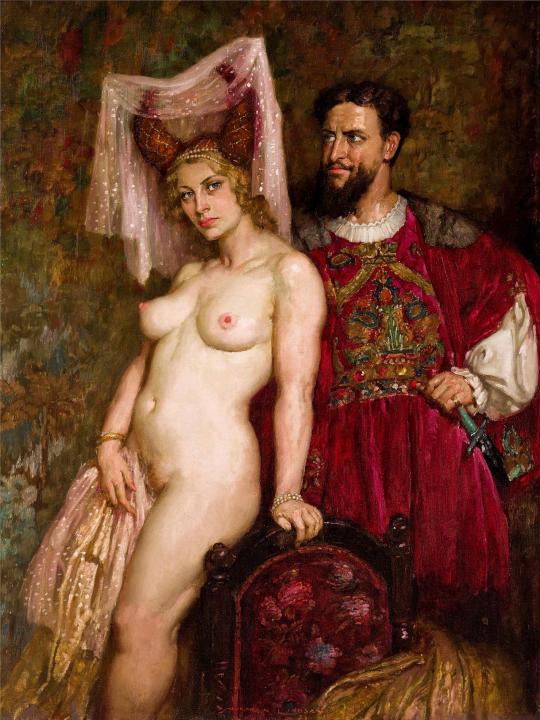
Norman Lindsay Isabelle et le Duc d'Orleans 1938
266 notes
·
View notes
Text

Princess Grace of Monaco with Jacques, Duc d'Orleans, and Marie Helene de Rothschild.
7 notes
·
View notes